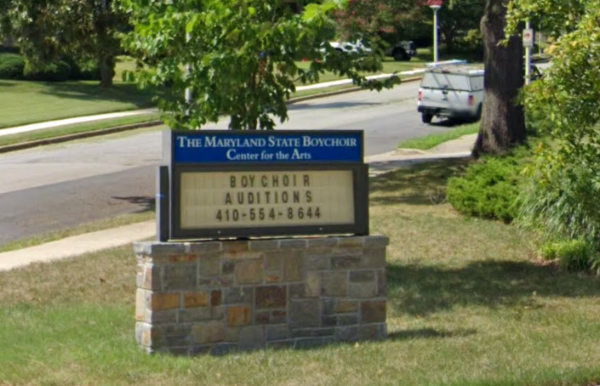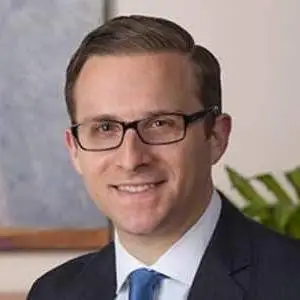
The Baltimore Sun reported that Frank T. Cimino Jr., the director of the Maryland State Boychoir, has resigned following his identification as one of the 156 Catholic Church staff named in a Maryland Attorney General's Office report on child sex abuse within the Archdiocese of Baltimore. The Baltimore Sun recently revealed that Cimino's name was among the 10 alleged abusers whose identities were redacted in the public version of the report issued on April 5, 2023.
Cimino, 75, founded the boychoir 36 years ago and has held the positions of president and director emeritus. Over the years, the choir has grown to include approximately 130 members and has gained recognition for its performances within the state, nationally, and even abroad.
The board of directors of the Maryland State Boychoir expressed deep surprise and acknowledged the unexpected nature of the circumstances surrounding Cimino's resignation. They emphasized that no previous complaints regarding his conduct had been brought to their attention. The board assured the community that they shared their concerns and pledged to monitor the situation closely. In the wake of Cimino's resignation, Stephen Holmes, the artistic director, has been appointed as the acting president of the choir.
However, an investigation by the Sun brought to light a previous incident involving Cimino. In 1987, he was fired from his position as the minister of music at St. Thomas More Catholic Church in Northeast Baltimore after a man reported that he had been sexually abused by Cimino during his time as a choirboy in the 1970s. The Archdiocese officials confronted Cimino with the allegations, which he denied. The recent attorney general's report revealed that the same man reported the sexual abuse again in 2020.
It is worth noting that Cimino started the boychoir the same year he was dismissed from St. Thomas More. The news of his inclusion in the attorney general's report prompted the choir's board to convene and address the matter urgently. Consequently, Cimino tendered his resignation, effective immediately.
The Maryland State Boychoir, committed to the emotional and physical safety of its members and community, has assured everyone that they will continue to evaluate the situation and keep them updated. They remain focused on their mission and the advancement of their important work.
Cimino's journey with the boychoir began humbly, with just 14 boys practicing in his mother's basement. However, the choir experienced remarkable growth over the years, recording several CDs and performing at prestigious venues, including the White House and the Vatican. The late Governor William Donald Schaefer designated the group as an official goodwill ambassador for the state. They even performed at his funeral after his death.
St. Matthew United Church of Christ in the Mayfield neighborhood of Northeast Baltimore has been the choir's home since Cimino purchased the building in 2006. Cimino, who also serves as the organist and music minister there.
The revelation of Cimino's involvement in the child sex abuse scandal has sent shockwaves through the Maryland State Boychoir and the wider community.

In this interview, we have the privilege of engaging with attorney Aaron Blank, experienced in clergy abuse lawsuits. With a profound commitment to supporting victims, Mr. Blank shares invaluable guidance on navigating the complex terrain of civil lawsuits. Discover the actionable steps victims can take and the significance of timely action. Join us as we gain valuable insights from a Maryland-based lawyer dedicated to empowering survivors of clergy abuse.
Editor Darla Medina (DM): Thank you for joining us, Mr. Blank.
Aaron Blank, Esq. (AB): Thank you for having me, Darla. It's crucial to address this important issue and provide guidance to those seeking justice.
DM: Absolutely. So, for victims of clergy abuse who want to pursue civil cases, what steps should they take?
AB: First, it's important for victims to consult with an experienced attorney who specializes in clergy abuse cases. They need someone who understands the legal complexities and can guide them through the process. Victims should gather any evidence they have, such as records, correspondence, or witness testimonies, to support their claims.
DM: And what options are available to victims in terms of holding liable parties accountable?
AB: Victims can file civil lawsuits against the individuals or institutions responsible for the abuse. In these cases, compensation may be sought for the physical, emotional, and psychological damages caused by the abuse. It's important to note that each case is unique, and the legal strategy may vary depending on the specific circumstances.
DM: Are there any time limitations or statutes of limitations that victims should be aware of?
AB: Yes, statutes of limitations can vary depending on the jurisdiction and the nature of the abuse. In Maryland, for example, the statute of limitations has been extended for child sex abuse cases. However, it's essential for victims to consult with an attorney promptly to understand their rights and any applicable time limitations.
DM: How can victims find support and resources while navigating through the legal process?
AB: Victims should reach out to local organizations and support groups that specialize in assisting survivors of clergy abuse. These organizations can provide emotional support, resources, and guidance throughout the legal journey. It's crucial for victims to surround themselves with a strong support network during this challenging time.
DM: Thank you, Mr. Blank, for sharing your expertise on this sensitive matter. Your information will undoubtedly help those who have endured such abuse.
AB: Thank you, Darla. It's my hope that this information empowers victims to take action and seek the justice they deserve.
 info@legalherald.com
info@legalherald.com